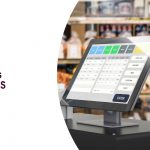Efficient Inventory Management for Retailers
It is important to evaluate your business on a regular basis to ensure that you remain successful in the industry. Managing inventory is an integral part of running a business and when done effectively, you can reduce product wastage and maximize sales. By creating a systematic way of managing stock levels, you can have the right products in the right quantity and avoid running out of merchandise. You can also ensure your products are sold in time to avoid obsolescence, or spending too much money on stock that is piling up in warehouses.
In this blog I will discuss some key inventory management techniques and also explain how inventory management software can help your business.
Best practices
Refine your forecasting: Keeping an accurate forecast of your expenditures is vital. Your calculations regarding how much stock is needed according to a certain trend or season will ensure that you do not buy anything extra and deplete your resources. Market trends, predicted growth, promotions and the economy should all be considered to make certain that none of your products are being wasted.
FIFO approach: The ‘First In, First Out’ method is an easy way to keep your goods in a chronological order as they are purchased. This is especially important for perishable items like food, plants, cosmetics, etc. This is also a good approach for non-perishable items since stock sitting on shelves for a prolonged period could become damaged or obsolete. The best way to apply the FIFO method is to add new items from the back so the older products are at the front.
Identify low-turn stock: If your store has items that haven’t been sold for months, then stop restocking them. Getting rid of excess stock through special discounts and price reductions, will create space to purchase new items and generate revenue..
Auditing stock: Even with the aid of an inventory management software, periodically you still need to count and check your stock. Some stores do an annual physical inventory check-up that counts every single item, which can be most useful for products that are selling quickly. Keeping track of your stock through systematic auditing will help your business in avoiding loss and boost profits.
Minimize repair time: Essential machinery doesn’t always work in order, so it is important to manage your assets. A piece of equipment that is broken or obsolete can be costly if you decide to keep spending money on repairing it. Instead, it is preferable that you monitor the life-cycle of your machinery, so that you are aware of when to discard them.
Quality control: No matter your specialty, it is important that all your products are of high quality. Having your employees do quick examinations during stock audits can help you in identifying damaged or low-quality products that are taking up space on shelves. Correct product labeling and keeping shelves clean will also satisfy customers when they purchase goods from your store. Exceptional quality is always appreciated and leads to high sales.
Hiring a stock controller: If you have a large retail store and are unable to manage inventory on your own, then hiring an inventory manager is an efficient way of making sure your work is being done. A stock controller processes all purchase orders, receives deliveries and certifies that everything coming in matches to the orders placed. Your time will be saved and product wastage will be minimized..
Digitizing inventory management
Effective inventory management software will save you time and money by doing much of the heavy lifting for you.
A good inventory management software should have the following qualities:
- Minimize costs and improve cash flow
- Track your inventory in real time
- Aid you in forecasting demand and sales to keep up with the latest business trends
- Prevent product wastage or shortages
- Allow for easy inventory analysis on any device and be accessible from your POS system
- Optimize warehouse organization and keep stock levels up-to-date
- Track inventory across several locations (if your retail business has multiple outlets.








